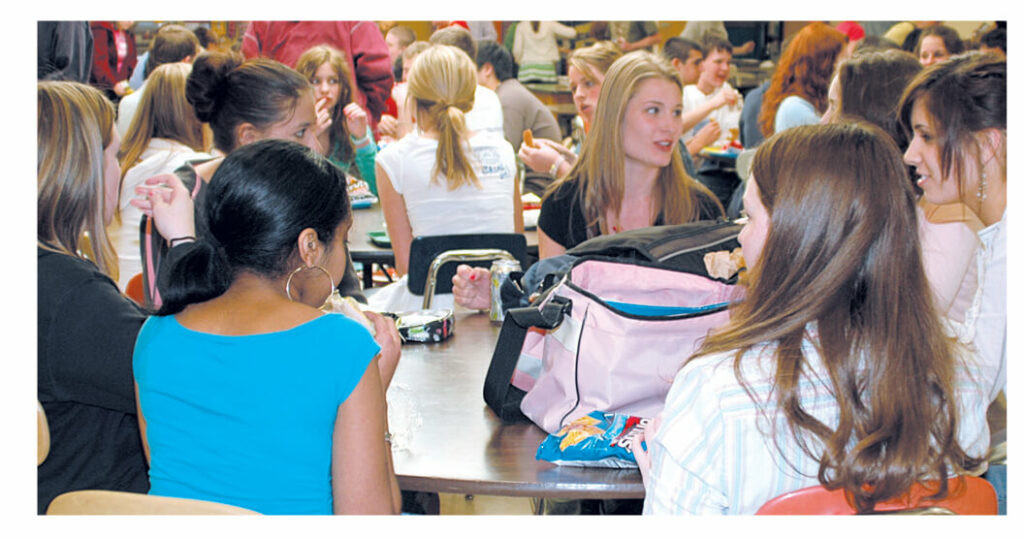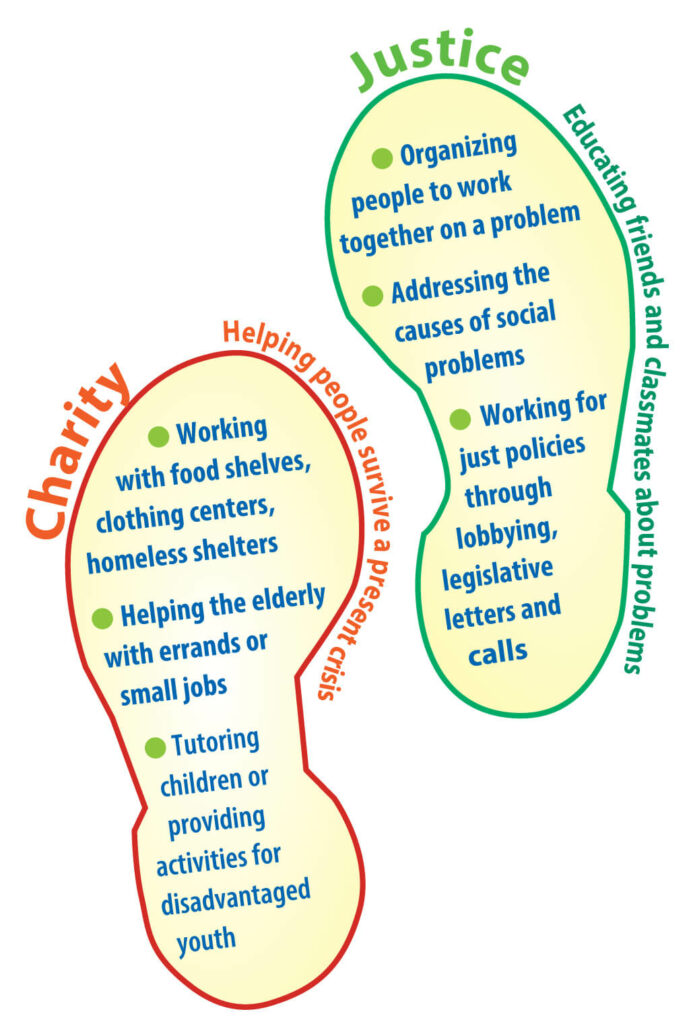
Sometimes schools call their cafeterias a lunch commons. All students can eat there. Some schools have grassy, outdoor spaces where students can eat, study, and visit—a student commons. A commons is the center of a world we share.
Boston Common is a park full of trees, grass, and flowers, right in the middle of downtown Boston. Once this land was the pasture early farmers shared in common.
A commons is a place where the people of a city or the students of a school experience who they are as a community. A commons gives us a visible picture of a concept important to Catholic social teaching—the common good.
The common good is a duty each of us shares to make life possible for all. When Zacchaeus becomes Jesus’ friend, he gives half his belongings to the poor. The common good, not just his own good, concerns him.
Catholic social teaching values the individual. Every human person is sacred, made in God’s image. The common good begins with respect for the inalienable rights of the human person.
However, the Catholic Church also recognizes that human beings are not a race of loners, nor does God in our history call us alone. God calls Abraham and Sarah to found a family of believers. God calls Moses to save an enslaved people and give them the commandments as a basis for living together.
We humans are social, made so that we can only grow and thrive in interaction with others. None of us survives without the care of a family, nor do we find our individual identity except in friendships. We develop our personal gifts through participating in teams, bands, youth groups as well as through individual practice and study.
To work for the common good means not only taking personal responsibility for one’s self, family, education, and conscientious work but also taking active part in public life.
Catechism of the Catholic Church, 1914-15, also 1905-1912
We achieve the common good by working together to insure every individual’s rights to what is necessary for a truly human life—food, clothing, shelter, education, work, and health. Vatican II’s Constitution on the Church in the Modern World also includes as basic the rights to choose a state of life freely, to found a family, to a good reputation, to respect, to appropriate information, to act on one’s conscience, to privacy, and to freedom of religion (#26).
The common good is not only local and national but also a global concern. Many people seek to simplify their lives, recycle, and eat vegetarian all or some of the time. They want to consume less of the world’s goods so that people in the developing world that are poor can at least survive and so that Earth can sustain itself and support its life forms. The common good requires peace.
Responding to the needs of the poor and promoting the common good require the two feet of social action—charity and justice.
Charity helps people survive their present crisis by directly serving their needs: feeding a hungry person is an act of charity. Justice addresses the root cause of a problem and attempts to change that cause: supporting legislation to aid hungry people is an act of justice.

